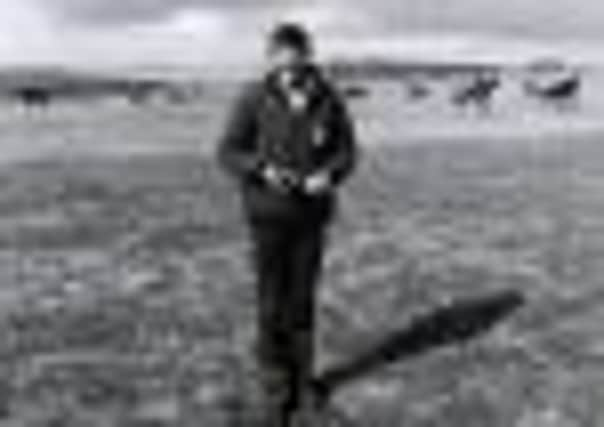Sporting Bygones: Boxing Day brings plenty of reasons to be cheerful for ‘genius’ Dickinson


“On about November 1, 1982, we were having dinner at Poplar House Stables at Harewood. My parents, Tony and Monica, were there with Sandy Dudgeon – he was our amateur rider at the time – and myself,” Dickinson told the Yorkshire Post.
“There were just the four of us. After a couple of glasses of wine, I said I was going to break the world record for the most winners in a day.
Advertisement
Hide AdAdvertisement
Hide Ad“My father was so embarrassed at what I would say in front of people that he would tell guests ‘you never know what the silly boy is going to say next’. Silly boy was my nickname.
“I had 55 horses at Harewood and I picked out 28 that we thought we could get ready for Boxing Day. We had 21 runners and they were all in the first three, apart from Green Teddy, and he was later found to have a bad heart.”
Dickinson, who grew up at the family stables at Gisburn before the move to Harewood, had been inspired by Colin Hayes, a Flat trainer who won 10 races on a single day in Australia in January 1982.
His legendary attention to detail, complemented by his father’s formidable record as a trainer and his mother’s horsemanship, meant the whole stable sacrificed Christmas so every horse – even those not racing on Boxing Day – could be exercised, fed and watered.
Advertisement
Hide AdAdvertisement
Hide AdThe only person left at the yard on the day of Dickinson’s record bid was head lad Brian Powell. “He was the lone soldier holding the fort,” said the trainer.
It was no mean feat sorting out the horse boxes and travel logistics to despatch the 21-strong cavalry to Wetherby, Sedgefield, Market Rasen, Wolverhampton and Kempton where the Dickinson family were bidding to win a fifth successive renewal of the prestigious King George VI Chase.
As for Dickinson, he had embarked upon the 400-mile round trip to Kempton where his partner Joan, an accomplished showjumper, was frequently despatched to the betting ring to keep track of the results, this tilt at history preceding the age of the mobile phone.
The early results were encouraging. Delius (Wetherby), Brunton Park (Wolverhampton), W Six Times (Market Rasen), Prominent Artist (Wolverhampton), Marinik (Huntingdon) and Happy Voyage (Wetherby) had all prevailed by the time that the King George started at 2.15pm.
Advertisement
Hide AdAdvertisement
Hide AdWhile the three-mile highlight was underway, Slieve Bracken brought up the Dickinson seven-timer at Wolverhampton before John Francome produced one of the rides of his illustrious career on Wayward Lad.
After Dickinson withdrew Bregawn, a horse who would go on to earn his place in racing folklore three months later, Francome switched to Wayward Lad, who joined stablemate Silver Buck and the Fred Winter-trained Fifty Dollars More in the air at the final fence.
The final battle up Kempton’s short home straight was a pulsating one, Francome taking command in the final 100 yards to beat Fifty Dollars More by two lengths with Silver Buck back in third under Robert Earnshaw, now a leading stipendiary steward.
There was a ready excuse for the defeat of the reigning Gold Cup champion Silver Buck; the odds-on favourite, had sprained a hock slightly at the beginning of December.
Advertisement
Hide AdAdvertisement
Hide Ad“It was very good to have the first and third in the King George, but to be honest both horses ran quite moderately,” said Dickinson at the time.
“Silver Buck wasn’t fit enough and Wayward Lad hadn’t got over his race at Cheltenham. He ran a stone below his form with Fifty Dollars More. I don’t blame myself for how they were, but I do for not appreciating beforehand.”
Having maintained family honour in the King George, Dickinson then began the long drive home with his record bid still hanging in the balance – the one disappointment was that Rathgorman only finished second in Wetherby’s Castleford Chase.
Londolizi then won at Sedgefield where Dickinson’s late father was saddling the stable’s horses; Thornacre’s win at Huntington then equalled the record before Fearless Imp (Market Rasen) and B Jaski (Sedgefield) brought up victories 11 and 12 almost simultaneously just after 3.15pm.
Advertisement
Hide AdAdvertisement
Hide AdHayes, the previous record holder, conceded: “I don’t know much about your jumping, but I guess to saddle 12 must be something special in any language.”
Dickinson, understandably, was elated as he switched on Radio Two – this was the era when the BBC religiously broadcast ever racing result – and heard confirmation that his audacious bid had come off, though he cannot quite remember his father’s response when he arrived back at Harewood.
Only 33, Dickinson was to pull off an even more remarkable feat in March 1983 when he trained the first five horses home in the Cheltenham Gold Cup; the quintet headed by the aforementioned Bregawn.
Dickinson, now the mastermind behind the Tapeta all-weather surface, draws comfort from the fact that most of the 12 winners – Francome on Wayward Lad being a notable exception – were ridden by his stable jockeys or “my boys” as he refers to them with paternal affection.
Advertisement
Hide AdAdvertisement
Hide AdHe is surprised, however, that his world record has not been eclipsed in the intervening three decades.
“The first five in the Gold Cup was the greater achievement, but 12 winners in a day was a better training performance,” he said.
“I’m surprised it hasn’t been broken because these top trainers today have 200 horses and we had 55.
“If I had 200 horses, I would have 25 in the day – it wouldn’t be that difficult.”
These are not the ambitious words of a ‘silly boy’, but a training genius who always believed in the near-impossible.